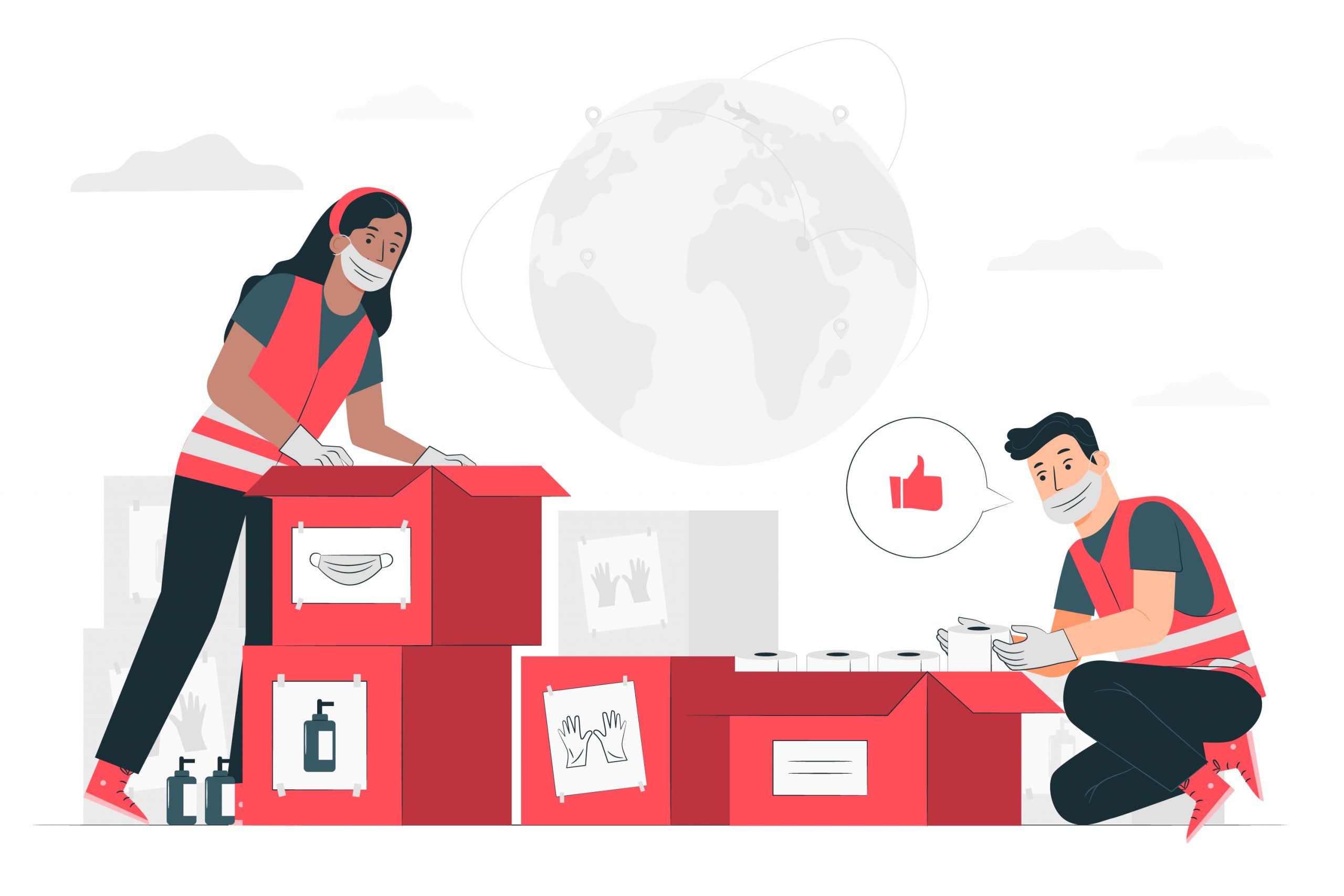
25 May How do nonprofits adapt to Covid-19?
The daily life that we knew as “normal” three months ago is gone, the economy has slowed down, and we see how the services provided by the social and non-profit sector have never been so essential.
In other countries, where the Covid-19 pandemic wreaked havoc earlier than in Mexico, such as Canada, civil society began to act and organize to continue doing its work.
In these challenging times, Mexico’s nonprofit initiatives have also been forced to pause or drastically decrease their fundraising and income generation programs. However, as in Canada, innovation has been key in maintaining the line of support and care for the most impacted populations and communities.
Imagine Canada, an allied initiative of Community Foundations of Canada, carried out an exercise to identify the initiatives that are keeping more active than ever, and is collecting hopeful examples of how organizations have found ways to adapt and pursue their goals in the face of this adversity.
We share here how organizations are facing these challenges that we have in common:
- Collaborate in a spirit of mutual aid
Faced with giant obstacles, the sector has united. In Montreal, the Espace Pour la Vie Foundation’s short-term priority is to support its botanical gardens, which are closed due to physical distancing measures but are doubling their vegetable production to donate to local food banks.
- Find new ways to reach people.
Physical distancing measures have complicated the operations of organizations that distribute physical goods. Staff at the Children’s Book Bank in Toronto believe that reading physical books, not just on the screen, is essential for children, especially in difficult times like these. They have partnered with a local organization working on food security, which is considered an essential service, to distribute books to families.
- Take events online
Buy Social Canada, which promotes social acquisition, had scheduled a symposium for April. When physical distancing measures made the event impossible in its original format, the team quickly worked to re-organize the event online and changed the content to emphasize how social acquisition can be a tool for post-COVID 19 recovery and reconstruction.
- Show empathy towards staff
To recognize the great stress its staff is facing right now, the Montreal Center for Community Organizations is paying its staff for full-time hours, but doesn’t expect them to work normal full-time hours. They are calling these «COVID hours» to account for the extra care responsibilities their staff has during this time.
- Find new ways of delivering programs
Wellspring Calgary, whose mission is to ensure that no one has to face cancer alone, has closed its physical locations to protect members of their high-risk community. However, Wellspring continues to find ways to support those living with cancer by transitioning many of its free programs to an online platform, and by offering its Money One and One-one-one Money Matters and mutual support programs over the phone. Attendance at Wellspring has increased, as those isolating themselves due to COVID report that they are «not alone» and are grateful to connect in Zoom rooms with their Wellspring online cancer support community.
- Being flexible with grantees
Early on in the COVID-19 crisis, the Lawson Foundation stepped up to support its grantees by reassuring them that payments would continue, giving them flexibility to spend grant dollars on urgent costs, telling them not to worry about reporting right now, and encouraging them to reach out if they need to.
- Create a crisis management team.
The COVID-19 crisis has been characterized by rapidly changing circumstances and therefore creating a lot of uncertainty. ALS Quebec has addressed this by setting up a crisis management team, which meets daily to monitor cash flow and keep abreast of changes in operations.
- Advocate on behalf of the sector.
When the crisis COVID-19 began to develop in Canada, many organizations and individuals mobilized to advocate for support measures for the sector and for the communities they serve. Since mid-March, people have sent Imagine Canada’s campaign letters in support of the sector more than two thousand times.
- Listening
The situation we face is unprecedented, and that creates a lot of uncertainty about how an organization can best serve their community. Organizations such as CNIB have reacted by asking communities what they need during this time and letting that information guide priorities. In the case of CNIB, this has meant developing 150 programs to keep people with vision loss connected during COVID-19 to combat social isolation.
As these Canadian organizations have shown, the uncertainty and volatility of information in these times can be an area of opportunity. In Mexico there are also enriching examples that are now being implemented and that we will address in a next installment. If you know of any initiative that stand out, and you think it is essential that we include them, write to us at contacto@comunalia.org.mx
Sources:
[1] https://www.imaginecanada.ca/en/360/charities-and-nonprofits-adapting-covid-19.
[2] https://www.imaginecanada.ca/en/360/covid-19-strengthening-partnership-time-crisis?mc_cid=10f7913d78&mc_eid=51e8c96acc
